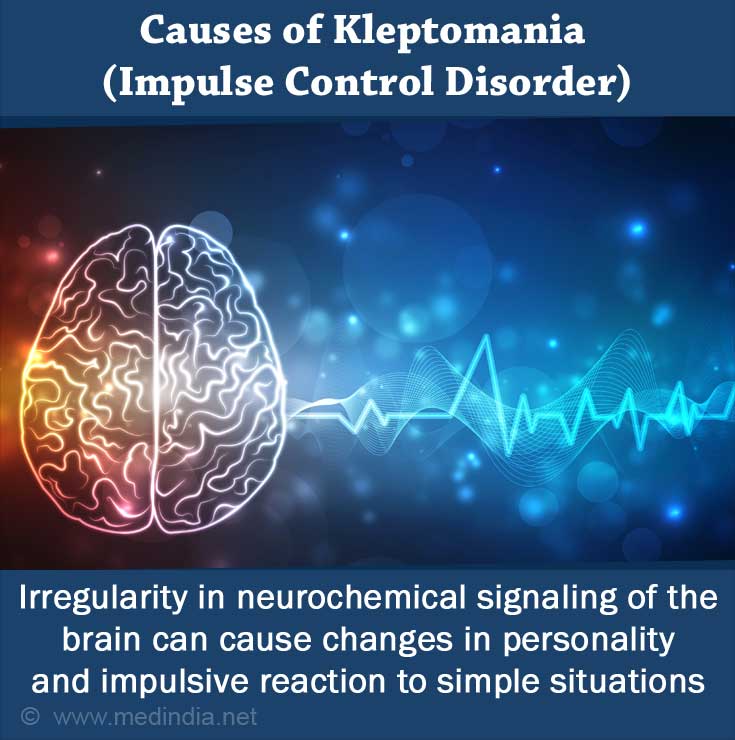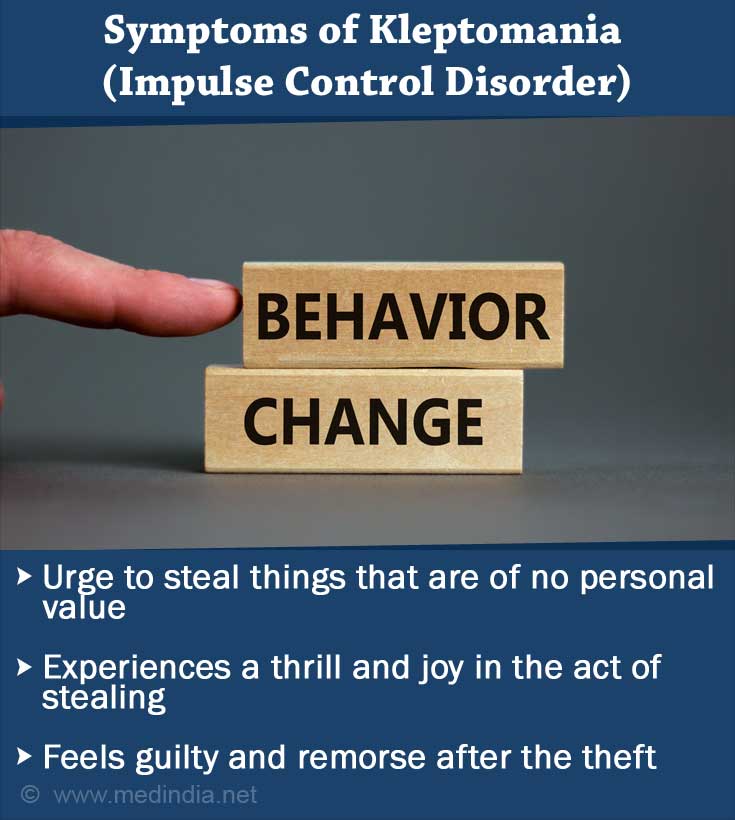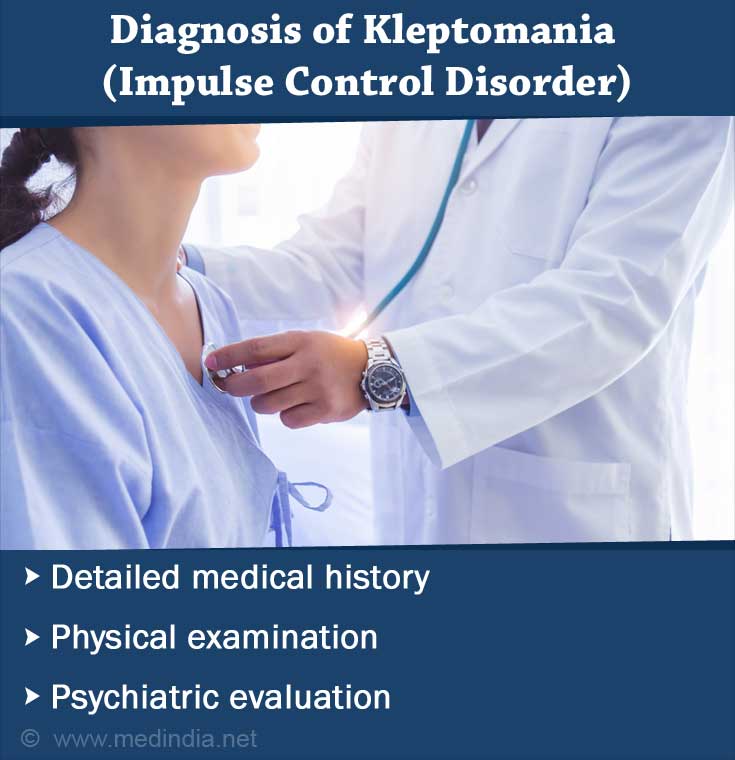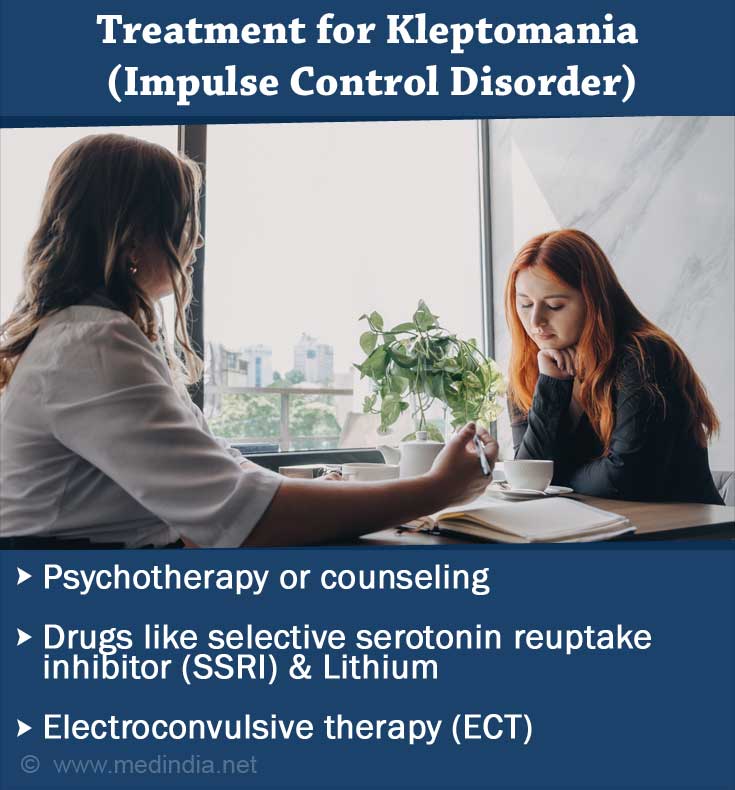- Kleptomania - (http://my.clevelandclinic.org/services/neurological_institute/center-for-behavorial-health/disease-conditions/hic-kleptomania)
- Talih FR. Kleptomania and Potential Exacerbating Factors: A Review and Case Report. Innovations in Clinical Neuroscience. 2011;8(10):35-39.
- Grant JE, Odlaug BL. Kleptomania: clinical characteristics and treatment. Rev. Bras. Psiquiatr. 2008;30(Suppl 1):S11-S15.
- Grant JE. Understanding and treating kleptomania. Isr J Psychiatry Relat Sci. 2006;43(2):81-87.
What is Kleptomania?
It is a common misconception that kleptomania is shoplifting. However, this perception is false. Yes, kleptomaniacs may be caught shoplifting but not all shoplifters have kleptomania. Kleptomaniacs who shoplift do not do so because they need the item or cannot afford it. They just take the item due to an irresistible and uncontrollable urge that they experience at that moment. The condition of kleptomania is termed as an impulse control disorder. As the term states, individuals are unable to control their impulse or urge to do things that could cause harm to them or to others. It is classified as a mental illness. ‘Kleptomania’ was coined by Jean-Etienne Esquirol and C.C Marc, who were French psychiatrists in the 19th century. The condition occurs in 0.6% of the population. It is difficult to assess the actual incidence due to the secrecy of the condition. People feel ashamed to talk of the condition and fear the legal ramifications involved. People volunteer to get treated when faced with legal challenges pertaining to some of their actions. Females are more likely to display the condition in a ratio of 3:1 with males.
What are the Causes of Kleptomania?
It has been suggested that the symptoms of kleptomania (irresistible urge or impulse) may be due to an irregularity in neurochemical signaling in the brain. Most of the signals that our brain gives us for different actions are regulated by an intricate network of brain chemicals, called neurotransmitters. Any defect in this signaling can cause changes in personality and in the reaction of the individual to simple situations.

In addition, other conditions including anxiety (childhood abuse, childhood neglect, sexual repression or abuse), depression, substance abuse (alcohol, smoking, drugs), moodiness, stress, and eating irregularities (bulimia, anorexia) are found to give rise to the condition of kleptomania. Sometimes, kleptomania may also be more prevalent in a family with multiple members being affected with the condition. Brain disorders, such as dementia or epilepsy and brain injury may also result in kleptomanic tendencies.
What are the Symptoms of Kleptomania?
The Diagnostic and Statistical Manual (DSM-IV-TR) has classified kleptomania as an impulse-control disorder.
Some of the symptoms of kleptomania are given below:
- No prior disturbing situation of anger or hallucination that results in theft
- Steals things that are of no personal or monetary value
- Experiences a thrill and joy at stealing the object

- No behavioral disorder or social aberration that prompts kleptomania
- Feels guilty and remorse after the theft is carried out
How to Diagnose Kleptomania?
Patients with kleptomania do not have any definite molecular symptoms that can be diagnosed with the typical blood or X-ray tests. Since it is an impulse-control disorder, primary physicians first do a complete medical checkup by taking the medical history and perform a physical examination. Patients with kleptomania that arise due to brain injuries or trauma, need to be physically examined.
Kleptomania patients are referred to psychologists and psychiatrists. Being a mental disorder, these specialists utilize effective health assessment tools that detect and confirm this mental condition.

What is the Treatment for Kleptomania?
Kleptomania is diagnosed by a psychologist or a psychiatrist. There are numerous hypotheses of the possible nature of the condition and what may cause it. However, there is no definite clue as to what exactly causes kleptomania.

Hence, the associated conditions of anxiety, stress, and substance abuse may be treated and in effect, the treatment may help the condition of kleptomania.
Psychotherapy or counseling
This is one of the common forms of treating kleptomania. Individuals are assessed for their psychological problems and are subjected to one of the three forms of therapy, such as family counseling, cognitive behavior therapy, and behavior modification therapy.
Health Tips
If the individual is aware of the kleptomania tendency, it is advisable to see a psychiatrist immediately to understand how to manage the problem. It is important to instil confidence in the individual and not treat them as a culprit. Once the fear of legal ramifications subside, the patient may open up to the therapist. This increased interaction may reduce the incidents of kleptomania.





